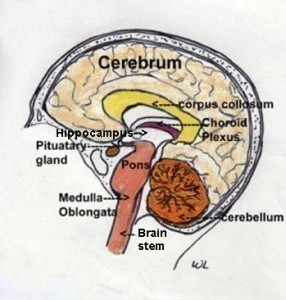What Causes Stress?
Stress is a normal physical response to events that make you feel threatened or upset your balance in some way. When you sense danger – whether it’s real or imagined – the body’s defenses kick into high gear in a rapid, automatic process known as the “fight-or-flight” reaction, or the stress response.
The stress response is the body’s way of protecting you. When working properly, it helps you stay focused, energetic, and alert. In emergency situations, stress can save your life – giving you extra strength to defend yourself, for example, spurring you to slam on the brakes to avoid an accident. But beyond a certain point, stress stops being helpful and starts causing major damage to your health, your mood, your productivity, your relationships, and your quality of life.
Causes of stress
 The situations and pressures that cause stress are known as stressors. We usually think of stressors as being negative, such as an exhausting work schedule or a rocky relationship. However, anything that puts high demands on you or forces you to adjust can be stressful. This includes positive events such as getting married, buying a house, going to college, or receiving a promotion.
The situations and pressures that cause stress are known as stressors. We usually think of stressors as being negative, such as an exhausting work schedule or a rocky relationship. However, anything that puts high demands on you or forces you to adjust can be stressful. This includes positive events such as getting married, buying a house, going to college, or receiving a promotion.
What causes stress depends, at least in part, on your perception of it. Something that’s stressful to you may not faze someone else; they may even enjoy it. For example, your morning commute may make you anxious and tense because you worry that traffic will make you late. Others, however, may find the trip relaxing because they allow more than enough time and enjoy listening to music while they drive.
Stress is not only caused by external factors. Stress can also be self-generated.
Major life changes
- Death: of spouse, family, friend
- Health: injury, illness, pregnancy
- Crime: Sexual molestation, mugging, burglary or pick-pocketed
- Self-abuse: drug abuse, alcoholism, self-harm
- Family change: separation, divorce, new baby, marriageSexual problems: getting partner, with partner
- Argument: with spouse, family, friends, co-workers, boss
- Physical changes: lack of sleep, new work hours
- New location: vacation, moving house
- Money: lack of it, owing it, investing it
- Environment change: in school, job, house, town, jail
Work such as
- The demands of the job
- The control staff has over how they do their work
- The support they receive from colleagues and superiors
- Their relationships with colleagues
- Whether they understand their roles and responsibilities
Financial problems
Being too busy
Children and family
It is very important that you learn how to manage your stress. Exercise can help you do this. Also it is important to set realistic goals for yourself. If something does go wrong, don’t let the stress take control and learn to forgive yourself for your mistakes. It may take some time to find the perfect stress management for you, but once you do it, you will feel so much better.
For more information on What Causes Stress read:






